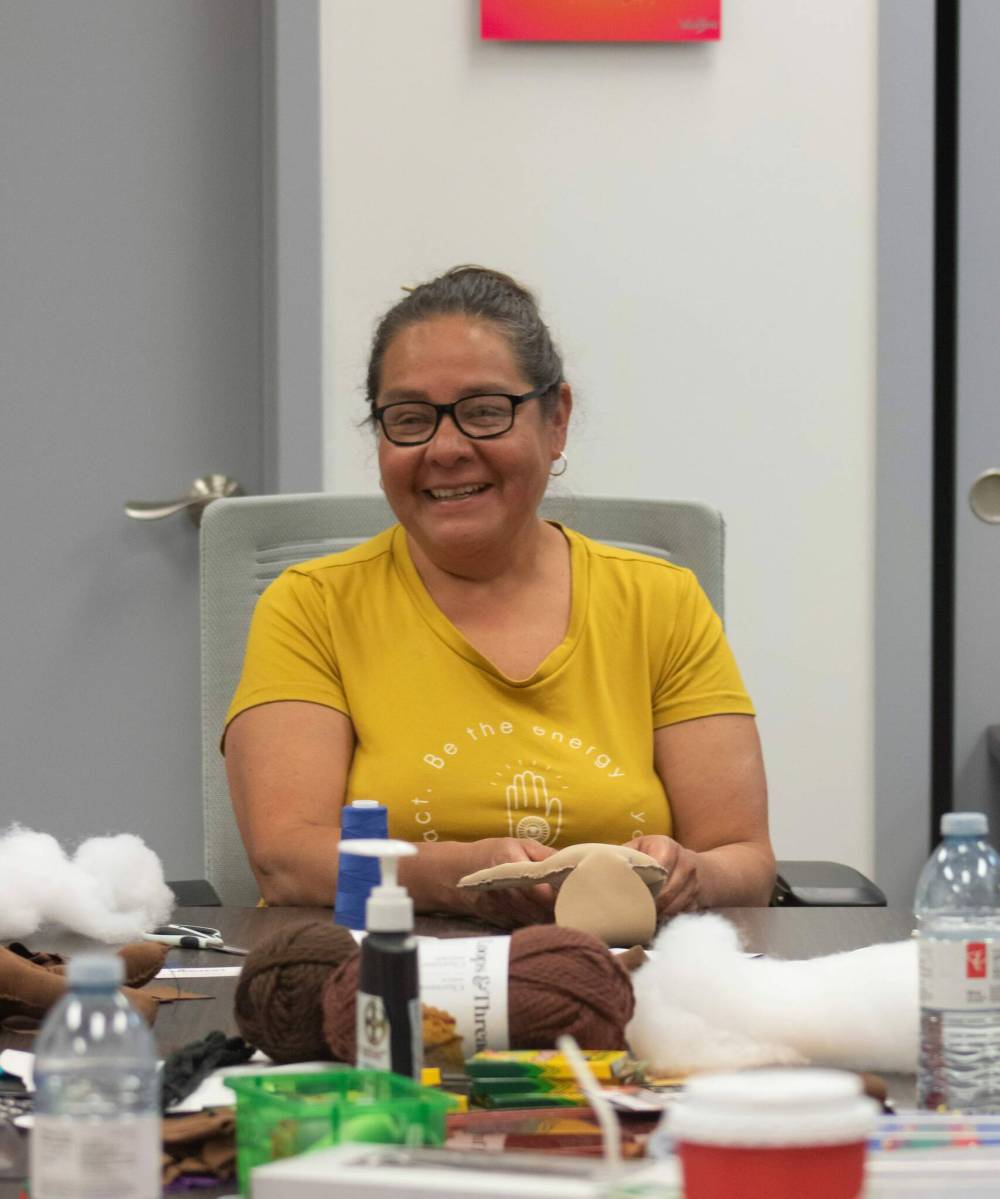Medicine doll workshop helps to heal, sewing up wounds left by residential school horrors
Advertisement
Read this article for free:
or
Already have an account? Log in here »
To continue reading, please subscribe:
Monthly Digital Subscription
$1 per week for 24 weeks*
- Enjoy unlimited reading on winnipegfreepress.com
- Read the E-Edition, our digital replica newspaper
- Access News Break, our award-winning app
- Play interactive puzzles
*Billed as $4.00 plus GST every four weeks. After 24 weeks, price increases to the regular rate of $19.00 plus GST every four weeks. Offer available to new and qualified returning subscribers only. Cancel any time.
Monthly Digital Subscription
$4.75/week*
- Enjoy unlimited reading on winnipegfreepress.com
- Read the E-Edition, our digital replica newspaper
- Access News Break, our award-winning app
- Play interactive puzzles
*Billed as $19 plus GST every four weeks. Cancel any time.
To continue reading, please subscribe:
Add Free Press access to your Brandon Sun subscription for only an additional
$1 for the first 4 weeks*
*Your next subscription payment will increase by $1.00 and you will be charged $16.99 plus GST for four weeks. After four weeks, your payment will increase to $23.99 plus GST every four weeks.
Read unlimited articles for free today:
or
Already have an account? Log in here »
Hey there, time traveller!
This article was published 28/07/2023 (826 days ago), so information in it may no longer be current.
Diane Maytwayashing and her daughter have been sewing medicine dolls for the last five years in an effort to bring comfort and healing to survivors of residential schools, day schools, the ’60s Scoop and to other members of the Indigenous community experiencing trauma.
On Friday afternoon, she sat at a table with women and girls who were sharing their stories, listening while tracing the doll pattern onto fabric, placing the stuffing inside and gently stitching its edges.
When Indigenous children were removed from their families’ homes and taken to residential schools, grandmothers and mothers would see dolls in the house, but no one to play with them, said Maytwayashing.
MIKE THIESSEN / WINNIPEG FREE PRESS Diane Maytwayashing facilitates a medicine doll making workshop put on by the Southern Chiefs’ Organization (SCO) Survivors’ Healing Program on Friday. The workshop was designed to bring comfort and healing to survivors of residential schools, day schools, the Sixties Scoop, and anyone experiencing trauma.
The grandmothers and mothers always sewed the dolls, she explained while choosing a piece of floral fabric and, then, sifting through bundles of brown yarn to cut pieces for hair.
“My parents went to residential school for years and they talked about the horrors. They weren’t allowed to be children and do things that children do, like play,” she said.
In May 2021, the Tk’emlúps te Secwépemc announced the discovery of potential unmarked graves containing the remains of 215 children at the former Kamloops Indian Residential School.
Maytwayashing said a group of grandmothers asked her to sew a special medicine doll so they could take a collection of toys with them to honour the children in B.C.
“I was staying up late at night sewing and crying. I was thinking of the children and how they had no toys,” she said.
Medicine dolls come from a place of love and healing. One doll can take four to five hours to craft.
“We’re putting good medicine into these medicine dolls and we’re thinking of who we’re making them for,” Maytwayashing said as she continued to sew a doll for her daughter.
Sitting beside her was Martina Fisher, an Indian residential school and day school survivors’ liaison for the Southern Chiefs’ Organization.
Fisher said she’s been working with residential school survivors and families for 12 years and understands how emotional the healing process can be.
She spent eight years at the Bloodvein River Roman Catholic Day School, and three more at the Assiniboia Residential School in Winnipeg.
“Children in residential schools never received any caring, love or nurturing. They cried alone and they had nobody to turn to,” she said, wiping away tears.
To her, sewing medicine dolls represents how the children never celebrated birthdays, Christmas or were told, “I love you.”
She said the impacts of residential schools has left her struggling to say that to her own children; she didn’t hear those words from her mother, a Norway House Residential School survivor.
“I love being around survivors because they help me heal,” said Fisher.
“When I made my first doll, I cried because of all the emotions that came out, but this time around it’s a little bit different, but my thoughts and feelings are still there.”
Her first doll sits near her family’s 85-year-old cradleboard — a device traditionally used by mothers to carry babies on their back.
Maytwayashing has been invited to conduct medicine doll workshops across Manitoba.
This was the second one she’s done with the Southern Chiefs’ Organization and the doll was the sixth she’s worked on for a relative.
“I’m telling everyone to make a pattern and take it home to become a tradition again, just like making ribbon skirts and moccasins,” she said.
tessa.adamski@freepress.mb.ca
History
Updated on Friday, August 4, 2023 4:14 PM CDT: Corrects time references in Martina Fisher's school history.

